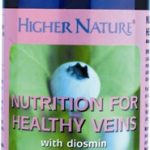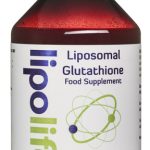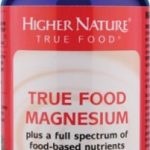Of all the parts of the body, our arteries and veins may be one of those we take most for granted. There they are under our skin, sometimes visible, other times not, transporting the blood (and, in it, all the oxygen, vitamins, minerals, nutrients and more we need to survive and stay healthy, as well as the harmful entities like carbon dioxide so they can be expelled from the body). Yes, they’re just doing their job, while we get on with our lives and, for the most part, ignore them.
But should we take them for granted; let alone ignore them? Well, usually, as long as we’re in good health, looking after ourselves in general via a decent, balanced diet and getting regular exercise, we shouldn’t have too much trouble on the vein front. Yet, occasionally, it’s sensible to think about the welfare of the vascular system; about how important it is to maintain artery and vein integrity. After all, it’s the arteries and veins that are the highways of our bodies; like motorways, should they become clogged up or damaged, things begin to grind to a halt. And we can end up getting ill – potentially seriously.
Dietary Tips
In addition to – as mentioned, getting exercise to keep our overall cardiovascular system in good trim – perhaps the major thing we can do to ensure our arteries and veins remain in good health is to seek the right nutrients for them from what we eat and drink. Diet is enormously important for a healthy body – and nowhere is that truer than for the vascular system. For good vein health then, you’re advised to ensure your diet is balanced, full of high-quality, organic food and definitely includes:
- Bioflavonoids – often responsible for the pigments of fruits and vegetables, these nutrient compounds occur in dark leafy greens, dark berries, onions and garlic (all the healthy but tasty stuff); according to The University of Maryland Medical Center, bioflavonoids found in the likes of blueberries, cranberries and grapes are great for aiding in the reduction of aching, pain and swelling of varicose veins, not least as they aid in strengthening blood vessels’ walls and valves1
- Fibre – an essential food group in general, fibre’s critical for the vascular system because it can lessen risk of blood thickening-, heart- disease- and stroke-causing high cholesterol as, according to the American Academy of Family Physicians, it helps ensure unnecessary and harmful fats are removed from the digestive system before they make it into the blood flow and become fatty plaques, as well as working to keep your weight down; indeed, NutritionMD maintains that women who are just somewhat overweight have a 50% greater risk than those not of experiencing varicose veins1
- Vitamin B3 – otherwise known as niacin, this nutrient’s often called on to help treat elevated levels of cholesterol and triglyceride (one of the two main constituents of body fat) in the blood and can also aid in combating atherosclerosis (which sees artery walls thicken); foods rich in niacin include green peas, mushrooms, peanuts and tuna
- Vitamin C – universally acknowledged as an utterly crucial nutrient for good health and to be found in a wide variety of recommended foods, Vitamin C (among its many roles in the body) is relied on for the production of the elastic fibres collagen and elastin, which are both critical for ensuring vascular walls are strong and flexible as blood pumps through arteries and veins; according to NutritionMD, the work of creating collagen and elastin can never afford to stop, so maintaining your Vitamin C levels is a priority here1
- Vitamin E – diabetics take note, as they’re more prone than most to blood clots that stick to artery walls, causing them to stiffen, narrow and weaken, and lead to heart disease and strokes; according to Vein Care of Americ,a Vitamin E’s highly effective at preventing platelets (blood-clotting proteins) from adhering together1 and the nutrient occurs in foods like kale, mustard and turnip greens, plant oils, raw seeds, spinach and Swiss chard.
Vein Support Supplements
In addition to adopting a healthy – and vein integrity-friendly – diet, you may be interested to learn there are supplements on the market designed to deliver many of the nutrients your vascular system requires to remain fit and strong. The three that follow – as well as several more – are available via The Finchley Clinic:
 Nutrition for Healthy Veins– a supplement solution that contains Vitamin E, bilberry and the potent antioxidants Diosmin and Rutin, which all combine to support vein and capillary strength and tone.
Nutrition for Healthy Veins– a supplement solution that contains Vitamin E, bilberry and the potent antioxidants Diosmin and Rutin, which all combine to support vein and capillary strength and tone.
 Liposomal Vitamin C – delivers the all-important nutrient via new supplement technology; the vitamin’s blended with phospholipids (a lipid combined with phosphorous) to ensure the Vitamin C reaches the body’s cells easier and more effectively.
Liposomal Vitamin C – delivers the all-important nutrient via new supplement technology; the vitamin’s blended with phospholipids (a lipid combined with phosphorous) to ensure the Vitamin C reaches the body’s cells easier and more effectively.
 True Food Natural Vitamin E – actually comprising many health-friendly nutrients in addition to Vitamin E, this product works to help protect cell membranes from oxidative damage and support healthy skin.
True Food Natural Vitamin E – actually comprising many health-friendly nutrients in addition to Vitamin E, this product works to help protect cell membranes from oxidative damage and support healthy skin.
Reference:
1. Haris N. ‘What Nutrients Are Needed to Keep the Arteries & Veins Strong?’ Healthy Eating SF Gate. http://healthyeating.sfgate.com/nutrients-needed-keep-arteries-veins-strong-5002.html.
